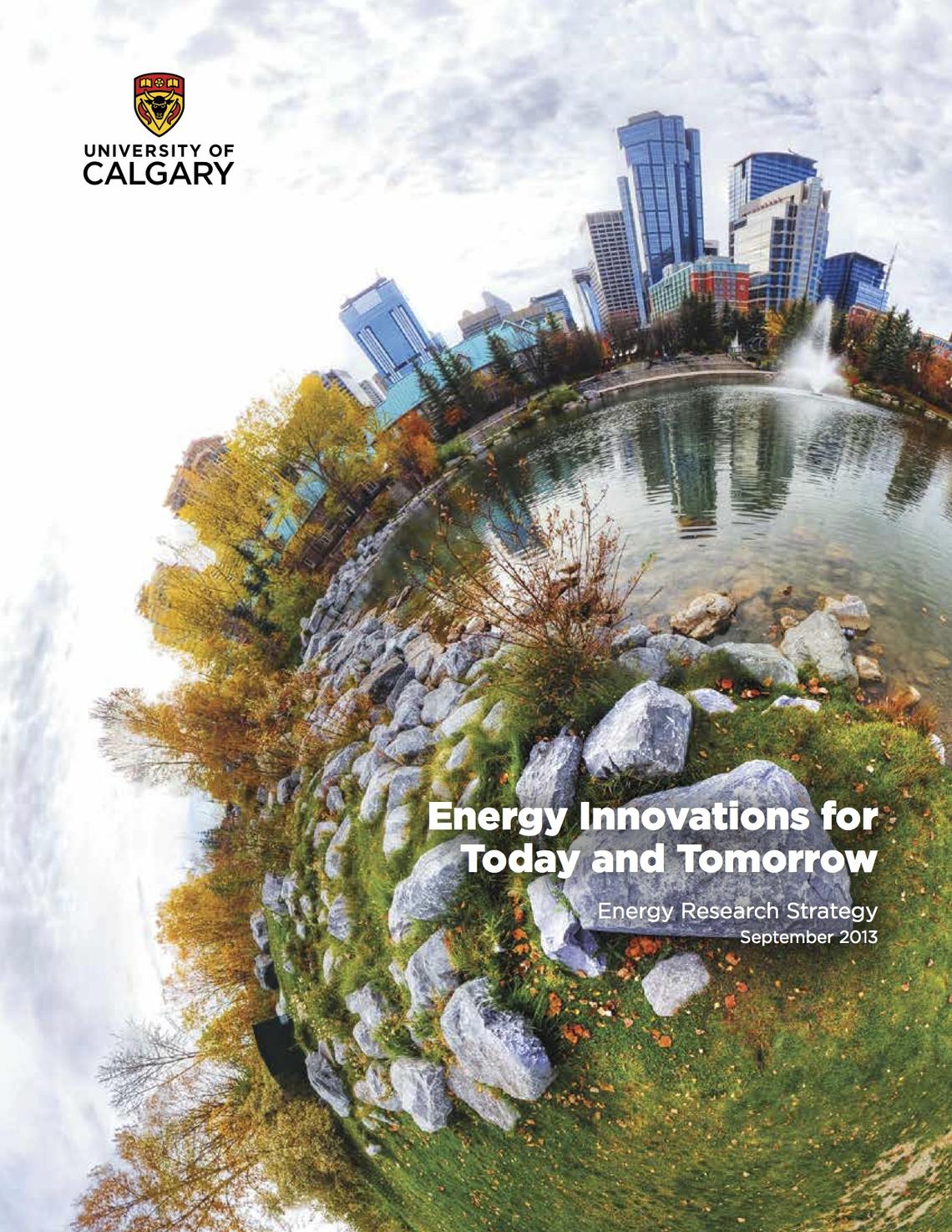
From left: Allan Ingelson, Bernhard Mayer, David Eaton, and Jeffrey Priest.
Riley Brandt, University of Calgary
May 7, 2014

From left: Allan Ingelson, Bernhard Mayer, David Eaton, and Jeffrey Priest.
Riley Brandt, University of Calgary
This story is Part 3 of a five-part series highlighting the University of Calgary’s strategic research theme Energy Innovations for Today and Tomorrow, and the recipients of the Vice-President (Research) Matching Funds to Advance Energy Research.
A group of University of Calgary researchers has been awarded funding for their Hydraulic Fracturing Innovation (HFI) Initiative research project. Their research will build a multidisciplinary research cluster that will become a world-leading centre for the advancement of hydraulic fracturing science, engineering, policy, and industry practice.
“Although hydraulic fracturing has been used extensively for over 50 years with increasing commercial success, its recent proliferation has outpaced the capacity of communities and regulatory agencies to make informed decisions,” says David Eaton, research team leader and professor of geophysics at the University of Calgary. “The HFI initiative will adopt a transparent, evidence-based approach and will work towards winning solutions that benefit society, the economy and the environment.” As a multidisciplinary team of researchers from science, engineering, law, arts, and public policy, the HFI initiative is equipped to liaise effectively with public and private groups affected by hydraulic fracturing.
Research will make evidence-based contribution to debate
Hydraulic fracturing is a divisive topic in Canada, and Eaton hopes the initiative can address public concerns with its evidence-based approach. “One misconception is that leakage of contaminants, including natural gas, into shallow groundwater occurs commonly as a direct result of recent hydraulic fracturing,” says Eaton. “Today’s best industry practices are at a higher standard than those used decades ago. This problem is now thought to arise more commonly from older wells that are leaking as materials lose their integrity. This may occur with or without hydraulic fracturing.”
Eaton brings his experience in microseismic methods to the project, having spent four years co-leading a research initiative working to monitor hydraulic fracture treatments.
The HFI Initiative plans to better assess the extent of environmental impacts related to potential gas and fluid leakage along shale gas wells. “It is critically important to identify potential sources of contamination and direct resources appropriately to mitigate these concerns,” says Eaton. “Ultimately we want to achieve hydraulic fracturing methods that are environmentally sustainable, which will require these challenges to be addressed by engineers.”

Read the Energy Innovations for Today and Tomorrow Energy Research Strategy.
Impact in three areas: technology, public policy, and environment
Hydraulic fracturing is one of four designated Grand Challenges within the Energy Innovations strategic research theme. “We selected hydraulic fracturing as a Grand Challenge because of the significant research strength in the area at the University of Calgary,” says Chris Clarkson, theme leader of Energy Innovations for Today and Tomorrow. “The HFI Initiative team is an interdisciplinary confederation of scholars with the skills to advance hydraulic fracturing research in the areas of technology, public policy, and environmental research.”
By fully harnessing the university research community, Eaton believes the project will have an impact across industry, communities, and regulatory boards. “This project will help the industry to optimize the design of hydraulic fracture treatments and thereby reduce costs,” says Eaton. “The community will have access to current, objective and clear research regarding environmental risks. Regulators will benefit from the integration of results where scientists and engineers are working hand-in-hand with policy and legal researchers.”
To ensure their resources are meaningful to all parties, the HFI Initiative will engage extensively with external parties on various aspects of hydraulic fracturing. “We will engage with industry and government stakeholders at annual symposia, building on the successful Grand Challenge Workshop in Hydraulic Fracturing that was held in November 2013,” says Eaton. The initiative will also hold interdisciplinary workshops, which will result in evidence-based deliverables on critical topics.
Initiative unique in Canada
“The ultimate goal is to ensure an optimized and environmentally sustainable development of unconventional energy resources in Canada based on rigorous science, engineering best practices, and well-informed regulations in a cross-integrated, collaborative environment,” says Eaton. “This initiative is unique in Canada, and we’re looking forward to executing it with the support of the University of Calgary.”
The Academic Plan and the Strategic Research Plan are the roadmaps through which the University of Calgary will achieve its Eyes High strategic direction to become one of Canada’s top five research-intensive universities by 2016, grounded in innovative thinking and teaching, and fully integrated with the community of Calgary. In addition to the theme of Energy Innovations for Today and Tomorrow, the university is building strength in five other multidisciplinary strategic research themes: Brain and Mental Health; Human Dynamics in a Changing World; New Earth-Space Technologies; Engineering Solutions for Health; and Infections, Inflammation and Chronic Diseases in the Changing Environment.